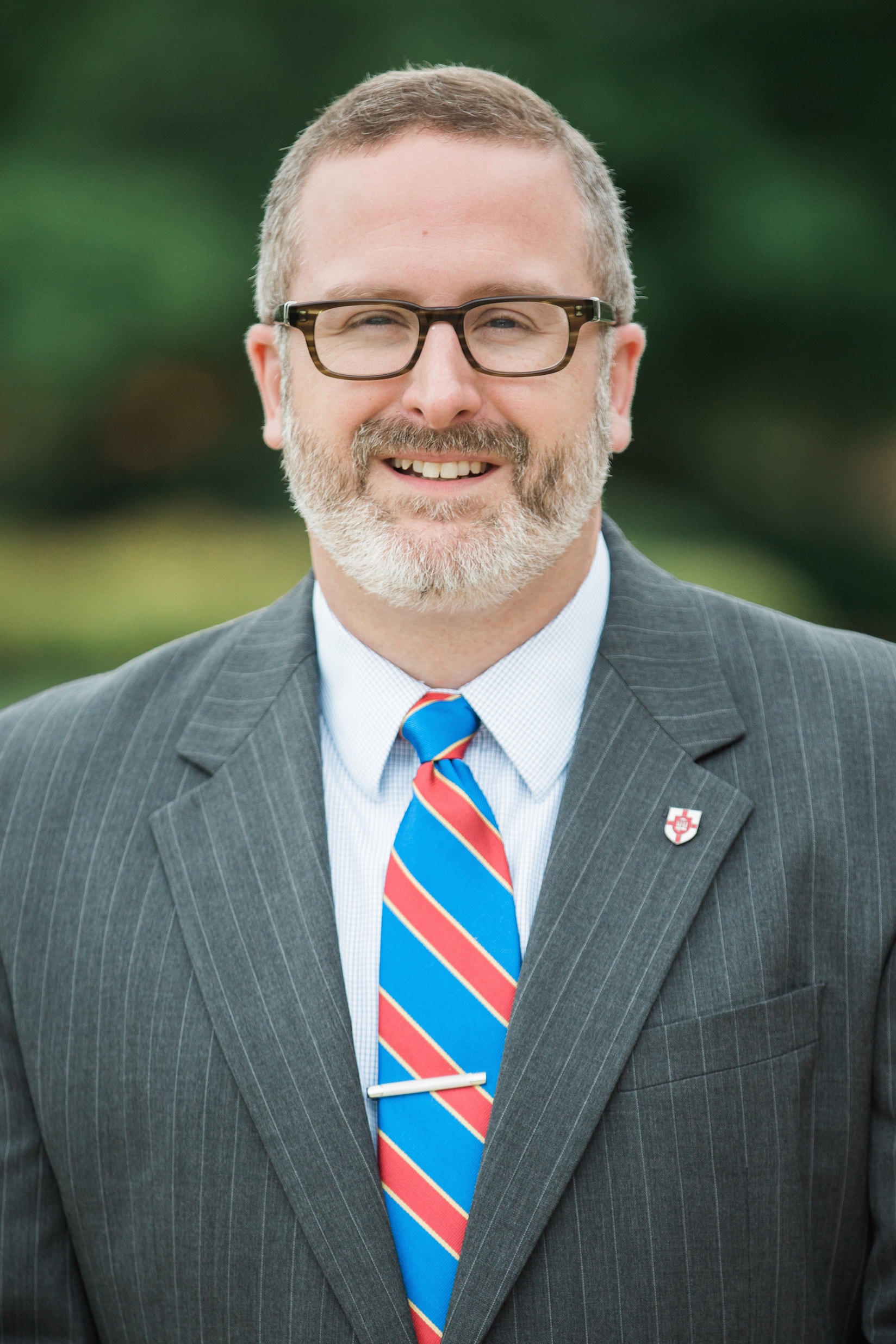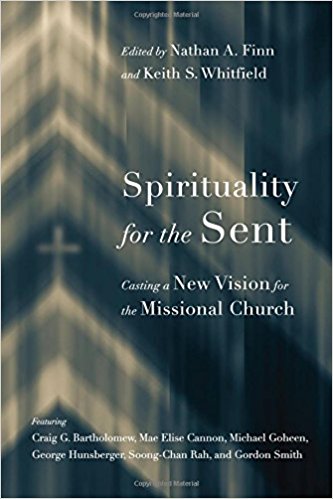In recent years, evangelicals have pursued a more holistic Christian mission and participated in discussions about spiritual formation. Yet these two important movements have developed independently and rarely intersected.
Nathan A. Finn and Keith S. Whitfield want to change that. In Spirituality for the Sent: Casting a New Vision for the Missional Church (IVP Academic, 2017), Finn and Whitfield bring together scholars from a variety of disciplines and ecclesial traditions to address the relationship between spiritual formation and mission.
Nathan A. Finn (PhD, Southeastern Baptist Theological Seminary) is a professor of Christian thought and tradition at Union University, where he also serves as dean of the School of Theology and Missions. He was kind enough to answer a few questions about the book, mission, spiritual formation and cultural engagement.
Some voices call Christians to retreat from broader culture, while others encourage us to assimilate into it. How should Christians view themselves in relation to culture?
 “I think we are called to be part of a ‘missional counterculture’ that is called to be both separate from the culture in some ways and deeply engaged within the culture in other ways. As a missional counterculture, we strive not to participate in those aspects of culture that we believe are sinful and lead humans away from God and his good intentions for his creatures. There are some jobs Christians shouldn’t hold, some places we shouldn’t be, some forms of entertainment we shouldn’t enjoy, etc.
“I think we are called to be part of a ‘missional counterculture’ that is called to be both separate from the culture in some ways and deeply engaged within the culture in other ways. As a missional counterculture, we strive not to participate in those aspects of culture that we believe are sinful and lead humans away from God and his good intentions for his creatures. There are some jobs Christians shouldn’t hold, some places we shouldn’t be, some forms of entertainment we shouldn’t enjoy, etc.
“As a missional counterculture, however, our separation is for the sake of mission. We are called to proclaim the gospel to unbelievers, live out the gospel’s implications in every sphere and promote the sort of human flourishing that reflects and anticipates God’s kingdom.”
What role does spiritual formation play in Christians’ interaction with culture?
“Spiritual formation is about practices, postures and priorities that cultivate godliness. This can be done in ways that focus almost exclusively on the internal and personal aspects of our spiritual life, but I don’t think that is healthy. We are commanded to love God and love our neighbors.
“So in our pursuit of holiness, we aren’t only growing in our love for God and hatred of our sin, but we are also participating in the missional counterculture I referenced above by engaging with culture for the sake of the kingdom. The internal should fuel the external, and the external should reinforce the internal.”
Mission should be part of the DNA of spiritual formation.
In your new book, Spirituality for the Sent, you call Christians to cultivate a “spirituality for the sent” – that is, to re-connect mission and spiritual formation. What are the dangers of divorcing mission from spiritual formation (and vice versa)?
“Different sorts of Christians, and even whole churches, are tempted toward different disordered approaches to mission and spiritual formation. On the one hand, we don’t want to become the wrong sort of activists who are inspired by some notion of faith to do many good things, but who’ve lost a vibrant relationship with Jesus Christ that is rooted in the gospel. On the other hand, we don’t want to become the caricature of the monastic or the mystic who is so busy attending to their spiritual life that they are oblivious to the needs of the lost and hurting around them. Spiritual formation should propel us into mission, and mission should be part of the DNA of spiritual formation.”
Which pastors, theologians or leaders integrate mission and spiritual formation well?
“John Stott stands out to me as an excellent recent role model for thinking seriously about the co-inherence of spirituality and mission. He didn’t write about this exact topic, but the sum of his writings and his deeds exemplified this. The so-called Clapham Saints in the Church of England, most famously John Newton and William Wilberforce, are excellent role models from an earlier generation. Closer to home, I think David Platt has promoted these sorts of themes in his public ministry.
“But in almost every case, Christian leaders get this right intuitively rather than reflecting deeply on the relationship between spiritual formation and mission. We edited this book in part to provoke more intentional conversations for the sake of a more robust biblical, theological and practice reflection on this topic.”
Spirituality for the Sent  brings together evangelical scholars from a variety of disciplines and ecclesial traditions to address the relationship between spiritual formation and a missional vision of theology and practice. The contributors share a common vision for a missional spirituality that fosters spiritual maturity while also fueling Christian evangelism, cultural engagement and the pursuit of justice.
brings together evangelical scholars from a variety of disciplines and ecclesial traditions to address the relationship between spiritual formation and a missional vision of theology and practice. The contributors share a common vision for a missional spirituality that fosters spiritual maturity while also fueling Christian evangelism, cultural engagement and the pursuit of justice.
This collection features contributions by Craig G. Bartholomew, Susan Booth, Mae Elise Cannon, Diane Chandler, Anthony L. Chute, Michael W. Goheen, George R. Hunsberger, Christopher W. Morgan, Soong-Chan Rah, Timothy W. Sheridan, Gordon T. Smith and Gary Tyra. Learn more>>





Comments and Pingbacks
2017-06-23 06:32:26
#FaithandCulture Reading: Juneteenth, Saving America, Planned Parenthood, the Alt-Right and Culture | Intersect
[…] at The Ethics and Religious Liberty Commission, Nathan Finn details a resolution from the Southern Baptist Convention’s 2017 Annual Meeting that calls […]
2018-03-15 23:29:30
#FaithandCulture Reading: Injustice of Toil, Being a Christian in the Culture, Important Books | Intersect
[…] at The Gospel Coalition, Nathan Finn shares a few of his favorite and most formative books with Ivan Mesa. He […]